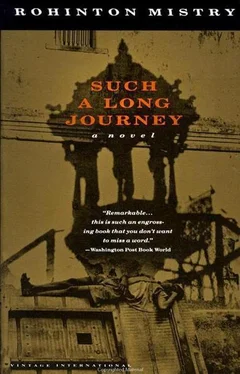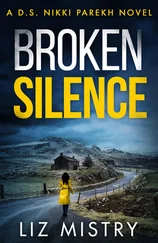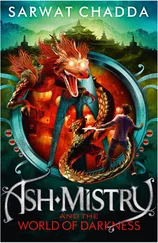‘Good to see your son reads the newspapers,’ said Gustad, finishing the tea in his saucer. ‘He may be a genius, but let me teach him something. Whatever you read in the paper, first divide by two — for the salt and pepper. From what’s left, take off ten per cent. Ginger and garlic. And sometimes, depending on the journalist, another five per cent for chilli powder. Then, and only then, will you get to the truth free of masala and propaganda.’ Dilnavaz was pleased with his impromptu lesson. Her scoreboard updated itself. Gustad leaned back and slid his cup towards the kettle.
‘But I heard this from an eyewitness,’ said Sohrab. ‘One of my college friends. His father works at the testing centre.’
‘College friend! Filling your head with rubbish and idiotic-lunatic talk. Be grateful this is a democracy. If that Russiawalla was here, he would pack you and your friends off to Siberia.’ He rubbed his forehead. ‘When he talks like this, the blood in my brain begins to boil! If I have a stroke, it will be your son’s fault, I am warning you!’
She watched, distressed. The vestiges of what had resembled a keen debate (she had half-enjoyed it, hoped it would usher in normalcy) was rekindling last night’s pyre. She signalled to Sohrab to say nothing.
‘For the last time, take my advice,’ said Gustad. ‘Forget your friends, forget your college and its useless degree. Think of your future. Every bloody peon or two-paisa clerk is a BA these days.’ He picked up his response to Major Bilimoria and went to the desk for an envelope.
Dilnavaz motioned to Sohrab to follow her. In the kitchen she selected a lime from her basket and bade him close his eyes. ‘What’s this?’ he protested. ‘What are you doing with the lime?’
‘It’s not going to hurt, just makes your brain healthy.’
‘What nonsense. My brain does not need any help.’
She shushed and pleaded that he do it for her sake, it was bad to have too much pride. ‘So many things science cannot explain. And a lime cannot harm you, can it?’
‘Oh, OK!’ He closed his eyes resignedly. ‘First Daddy gets dramatic, then you get necromantic. You two drive me crazy.’
‘Don’t be rude. And don’t use big-big words.’ She held the lime in her right hand and described seven clockwise circles over his head. ‘Now open your eyes, look hard at it.’ She drew it away from him with a downward motion, towards his feet, and tucked it in a brown paper bag. Later, it would be tossed into the sea. This last step was crucial, Miss Kutpitia had explained; it was imperative not to discard the lime with the garbage.
Suddenly, everything Miss Kutpitia said seemed imbued with deep wisdom.
After the awkwardness at the dinner party, Gustad was uncomfortable when he met Dinshawji on Monday, but the latter put things at ease. ‘Don’t worry about it. Argument is normal when a boy is growing up. You think I have become old without seeing such things?’
At lunch-time, Gustad did not go to the stairwell where the dubbawalla deposited the tiffin boxes. He would let his lunch return home uneaten, and without his pencilled note to Dilnavaz which, over twenty-one years, was the one constant in their lives, always written and always read, no matter how much they fought or quarrelled. Until today. The daily notes did not say much: ‘My Dearest, Busy day today, meeting with manager. Will tell you later. Love & xxx.’ Or: ‘My Dearest, Dhandar-paatyo was delicious. Aroma made everyone’s mouth water. Love & xxx.’
Dinshawji approached Gustad’s desk with his packet of sandwiches. Unlike the others, he carried his lunch in his briefcase every morning, usually last night’s leftovers slopped between two slices of bread. He often turned up with gems like cauliflower sandwiches, brinjal sandwiches, French bean sandwiches, pumpkin sandwiches, and ate them cheerfully, soggy bread and all. If he was teased about his epicurean delights, he would say, ‘Whatever my dear domestic vulture gives, I eat without a word. Or she will eat me alive.’
Dinshawji’s lucky days, like the one today, were those when nothing remained from the previous night. On such days, Alamai fried a spicy omelette in the morning to go between the bread slices. As he unwrapped the paper, the pent-up smell of onion, ginger and garlic issued like a squirt. ‘Come on yaar, ’ he said to Gustad. ‘Get your dubba and let’s go to the canteen.’ He wanted to be on time for the daily feature.
Every day in the canteen, over lunch, their regular group told jokes. They told the perennially popular Sikh jokes (What did the Sardarji runner say, after finishing first in the Asian Games, when asked: ‘Are you relaxing now?’ He said: ‘No, no, I am still Arjun Singh’); they told Madrasi jokes, mimicking the rolled-tongue sounds of South Indian languages (How does a Madrasi spell minimum? Yum-i-yen-i-yum-u-yum); they told Guju jokes, capitalizing on the askew English pronunciations of Gujaratis and their difficulties with vowels, ‘o’ in particular (Why did the Guju go to the Vatican? He wanted to hear pope music. Why did the Guju bite John Paul’s big toe? He wanted to eat popecorn); they told Pathani jokes, about the Pathan’s supposed penchant for rear-entry (A Pathan went to his doctor: ‘Doctor Sahab, in my stomach is a lot of pain.’ So the doctor gave him an enema. The Pathan left in ecstasy, told his friends: ‘ Arré, how pleasureful modern science is — belly in pain, but medicine beautifully arse-way rammed.’ The next day, his friends lined up at the doctor’s clinic for enemas).
The group in the canteen did not spare themselves either, joking about the vast reputation of the Parsi proboscis (What happens when a bawaji with an erection walks into a wall? He hurts his nose). No linguistic or ethnic group was spared; perfect equality prevailed in the canteen when it came to jokes.
Lunch-time was the highlight of the drab working day. Invariably, Dinshawji was the star performer, the group hanging on to his every word. There were contributions from others too, but these seemed to pale in comparison. Dinshawji stored away everything he ever heard; weeks, even months later, he would bring it forth, refurbished and improved, a brand-new story. It was a necessary bit of plagiarism that no one minded.
Sometimes, instead of jokes, they had a song-session. If Dinshawji was the star of the comic hour, it was Gustad who shone during the singing. Especially in demand were his renditions of Sir Harry Lauder’s favourites like ‘Roamin’ in the Gloamin” and ‘I Love a Lassie’ which Gustad delivered with a marvellous Scottish brogue. Although the custom was to sing together, everyone fell silent when he sang:
By yon bonnie banks and by yon bonnie braes,
Where the sun shines bright on Loch Lomond,
Where me and my true love will ne’er meet again,
On the bonnie, bonnie banks of Loch Lomond.
But they always found the refrain irresistible, and joined in with Gustad, drowning his efforts:
So ye take the high road and I’ll take the low road,
And I’ll be in Scotland afore ye,
But me and my true love will ne’er meet again,
On the bonnie, bonnie banks of Loch Lomond.
It was not all jokes and singing in the canteen, though. Sometimes the hour went in passionate argument about matters that concerned the community, such as the Tower of Silence controversy. When the bank clerks and tellers debated the reformers’ proposal to introduce cremation, tempers flared and there were bitter personal attacks. But Dinshawji would manage to end matters on a light note, saying things like: ‘Better that my dear domestic vulture eats me up than the feathered ones. With her I have a guarantee — she at least won’t scatter pieces of my meat all over Bombay.’
Читать дальше












